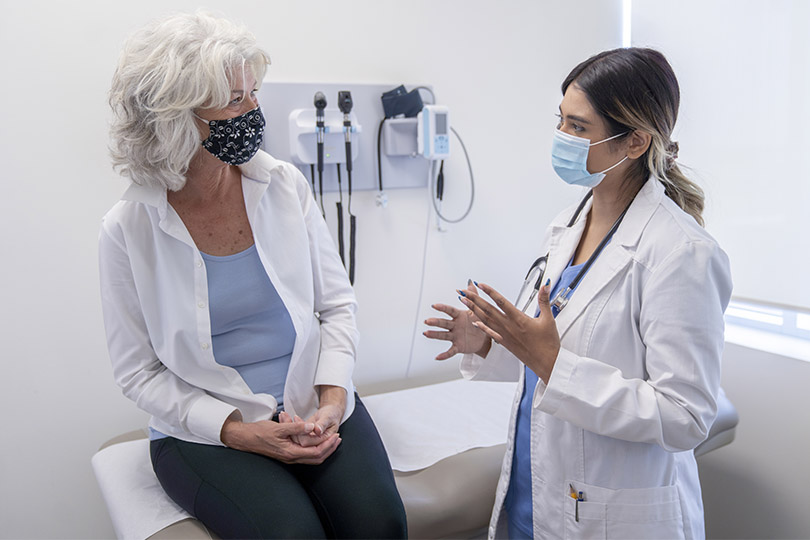Evaluation & Treatment
Patient-Centered Care
Lahey Hospital & Medical Center Division of Psychiatry and Behavioral Medicine offers treatment and therapy for all types of psychiatric and behavioral health disorders, as well as mental health complications associated with chronic medical conditions.
Your care begins with a patient-centered needs assessment that follows a comprehensive psychiatric evaluation. After diagnosis, we work with you to form a personalized treatment plan which may include individual or group therapy, medicine or other counseling. We also work closely with your other medical providers to give you coordinated care. Our goal is to provide you with a host of therapeutic options that match your needs and answer any questions you may have about your treatment plan.
When Medication Is Needed
When it comes to psychiatric and behavioral health issues, medication is sometimes needed, but not always. Our team includes both prescribers (physicians and advanced practitioners) and therapists (such as clinical social workers and psychologists) who work together to provide you with the treatment that best meets your needs.
You will begin your treatment by meeting with a therapist. If your therapist feels you might benefit from medication, you’ll be referred to a prescriber for a pharmacological evaluation. Often, medication and therapy go hand-in-hand.
Inpatient & Outpatient Treatment Options
Our providers use the most current treatments to help you feel better. We offer outpatient therapy and treatment, including:
- Addiction counseling
- Individual and couples therapy
- Group therapy
- Medications
- Mindfulness
- Psychotherapy
- Stress management
Treatment works best when you see your therapist as often as necessary, so we work with your schedule to meet that goal. When your care requires something beyond our offerings, we have access to specialized treatments and programs through our connection with Lahey Health Behavioral Services. These services are right at your fingertips and include inpatient care, crisis stabilization, partial hospitalization, day programs, and a full spectrum of substance use services—from acute detox to residential settings for those without additional medical issues.
Family Support
Family involvement in the treatment plan plays an important role in patient success. If you live with or care for someone receiving treatment, we can help you learn coping skills and offer support as your family member heals. This helps you to support your family member as they overcome mental and behavioral health issues.

